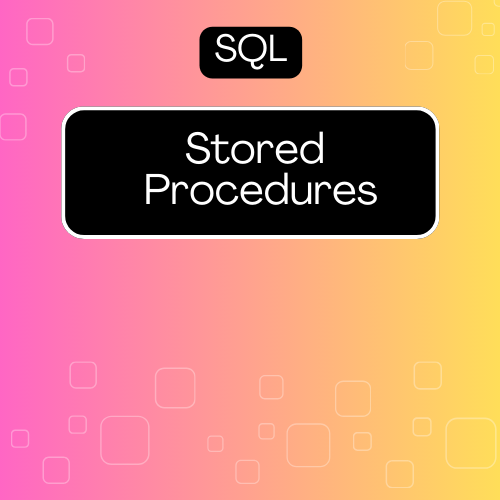When diving into the world of SQL, you’ll quickly come across the concept of stored procedures. But what exactly are they, and why should you care? Stored procedures are like mini-programs within your database. They allow you to encapsulate complex operations and execute them with a single call. Let’s break down what stored procedures are all about and why they can be a game-changer for your database management.
What Are Stored Procedures?
A stored procedure is a set of SQL statements that you can save and reuse. You can think of it as a recipe: once you’ve written it down, you can refer to it whenever you need to make that dish, without having to remember every step each time. By using stored procedures, you can simplify your database operations and improve performance.
Benefits of Using Stored Procedures
- Reusability: Once you create a stored procedure, you can call it multiple times without rewriting the same SQL code. This makes your life easier and your code cleaner.
- Improved Performance: Stored procedures are compiled and stored in the database, which can lead to faster execution times. When you run a stored procedure, the database engine doesn’t have to parse the SQL code each time, reducing overhead.
- Security: You can control access to the underlying tables by granting permissions on the stored procedures instead of the tables themselves. This adds a layer of security to your database operations.
- Consistency: By encapsulating complex logic in a stored procedure, you ensure that all users interact with the data in the same way. This reduces the chance of errors and inconsistencies in data handling.
- Reduced Network Traffic: If you need to execute multiple SQL statements, you can bundle them into a single stored procedure call. This minimizes the amount of data transferred between your application and the database, leading to faster overall performance.
Syntax for Creating a Stored Procedure in MySQL
To create a stored procedure in MySQL, you can use the following syntax:
DELIMITER //
CREATE PROCEDURE procedure_name (parameters)
BEGIN
-- SQL statements
END //
DELIMITER ;
Example
Here’s a simple example of a stored procedure that retrieves all records from a table called employees:
DELIMITER //
CREATE PROCEDURE GetAllEmployees()
BEGIN
SELECT * FROM employees;
END //
DELIMITER ;
Calling a Stored Procedure
To call a stored procedure, you can use the CALL statement:
CALL GetAllEmployees();
When to Use Stored Procedures
Stored procedures are particularly useful in scenarios where:
- You have complex business logic that needs to be executed regularly. Instead of repeating yourself, encapsulate that logic in a stored procedure.
- You want to enforce rules and validations before performing operations on your data. Stored procedures can help maintain data integrity.
- You need to optimize performance for frequently executed queries. By using stored procedures, you can reduce the load on the database engine.
Conclusion: Embrace the Power of Stored Procedures
In summary, stored procedures are a powerful feature of SQL that can help you streamline your database operations, enhance security, and improve performance. Whether you’re a beginner or an experienced developer, learning to leverage stored procedures can make a significant difference in how you manage and interact with your data.
So, next time you’re faced with a repetitive task or complex logic in your SQL work, consider creating a stored procedure. It’s a small step that can lead to big improvements in your database management practices!
